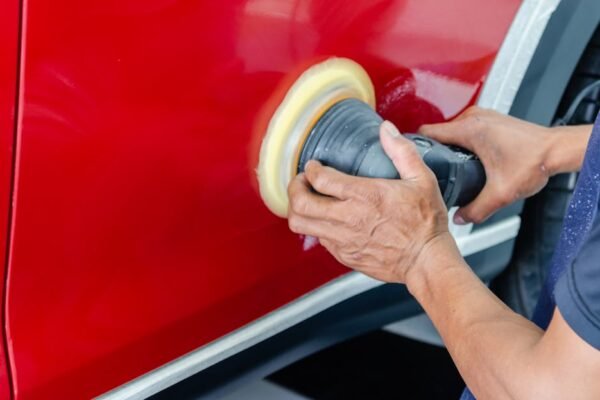The Pioneers of Change
{“type”:”img1″,”src”:”https://mostmotors.com/wp-content/uploads/2024/03/fileUpload-61.jpg”,”alt”:”women in leadership”}The automotive industry, long dominated by men, is undergoing a transformation with women at the helm. Influential female leaders are not only breaking glass ceilings but are also steering the sector towards innovation, sustainability, and inclusivity. Their journey, marked by challenges and triumphs, serves as an inspiration to many.
One of the notable figures is Mary Barra, CEO of General Motors, who has been a driving force in pushing the automotive giant towards electric vehicles and sustainability. Under her leadership, GM has made significant strides in reducing its carbon footprint and investing in electric technology.
Another influential leader is Annette Winkler, former CEO of Smart Automobile. Her vision for compact and efficient city cars has transformed urban mobility, offering a sustainable alternative to conventional vehicles.
Michele Roberts, head of design at Ford Motors, is revolutionizing how cars are designed. Her approach incorporates not only aesthetic appeal but also functionality and user experience, setting new standards in the industry.
These women have not only excelled in their respective roles but have also paved the way for future generations of female leaders in the automotive sector. Their achievements underscore the importance of diversity and representation in driving the industry forward.
Driving Innovation and Sustainability
The influence of women in the automotive industry extends beyond leadership roles. They are at the forefront of innovation, especially in areas related to sustainability. Environmental concerns and the urgent need for sustainable transportation solutions have sparked a wave of innovation led by female engineers and designers.
Engineers like Elizabeth Hill, Chief Engineer of Electric Battery Development at Tesla, are leading the charge in electric vehicle technology. Her work focuses on making electric cars more efficient, affordable, and accessible, aiming to reduce dependence on fossil fuels.
Designers like Sofia Chetri, Senior Designer at Volvo, are reimagining vehicle interiors with sustainability in mind. By using recycled materials and focusing on energy efficiency, Chetri’s designs embody a commitment to minimizing environmental impact.
Product managers, like Sara Bodner of BMW Group, are instrumental in developing sustainable mobility solutions. From electric scooters to car-sharing initiatives, Bodner’s projects aim to reduce urban congestion and emissions, showcasing the potential of sustainable urban transportation.
These women’s dedication to innovation and sustainability is shaping the future of transportation, making it greener, more efficient, and inclusive.
The Challenge of Representation
{“type”:”img1″,”src”:”https://mostmotors.com/wp-content/uploads/2024/03/fileUpload-63.jpg”,”alt”:”diverse group of professionals”}Despite the progress and success stories, women still face significant underrepresentation in the automotive industry. Stereotypes and gender biases persist, often creating barriers to entry and advancement for women in this field.
Initiatives like 'Women in Automotive' and 'Girls Auto Clinic' are working to change this narrative by offering support, education, and mentorship for women aspiring to enter the automotive sector. These organizations aim to dismantle stereotypes and create a more inclusive industry.
The challenge of representation also extends to leadership positions. While there has been an increase in the number of women in executive roles within the automotive industry, the numbers are still disproportionately low compared to their male counterparts.
Addressing this challenge requires a concerted effort from companies, educational institutions, and policymakers to foster an environment that supports and encourages the participation of women in all aspects of the automotive industry.
As we look towards the future, the success and influence of women in the automotive sector serve as a testament to the importance of diversity and representation. By acknowledging and addressing the challenges, the industry can continue to innovate and grow, driven by the contributions of women leaders.
Mentorship and Support Networks
The role of mentorship and support networks cannot be overstated in fostering the next generation of female leaders in the automotive industry. Access to guidance from experienced professionals can make a significant difference in navigating the challenges and seizing opportunities in this field.
Mentorship programs, both within companies and through industry associations, provide a platform for sharing knowledge, experiences, and advice. These initiatives not only support career development but also help build confidence and resilience among aspiring female automotive professionals.
Support networks, such as professional associations for women in the automotive industry, offer a sense of community and belonging. These groups facilitate networking, collaboration, and advocacy, enabling women to share their experiences and support each other in their professional journeys.
The positive impact of mentorship and support networks is evident in the stories of countless women who have advanced in their careers, overcoming obstacles and achieving success in the automotive industry. By continuing to strengthen these support systems, the sector can nurture a diverse and dynamic workforce that is well-equipped to lead the industry into the future.
Looking to the Future
The increasing presence and influence of women in the automotive industry is not just a trend; it is a paradigm shift. As the sector continues to evolve, the contributions of female professionals in driving change and innovation will be indispensable.
The push towards sustainability, digital transformation, and smart mobility provides ample opportunities for women to lead and innovate. Embracing diversity and fostering an inclusive environment will be key to harnessing the full potential of the workforce.
As we champion the achievements and contributions of women in the automotive industry, it is crucial to also focus on the challenges that remain. Addressing issues of representation, inclusion, and access will ensure that the future of the industry is shaped by a diverse range of perspectives and talents.
The journey of women in the automotive domain is a narrative of resilience, innovation, and leadership. By celebrating and supporting their contributions, the automotive industry can look forward to a brighter, more inclusive future.





